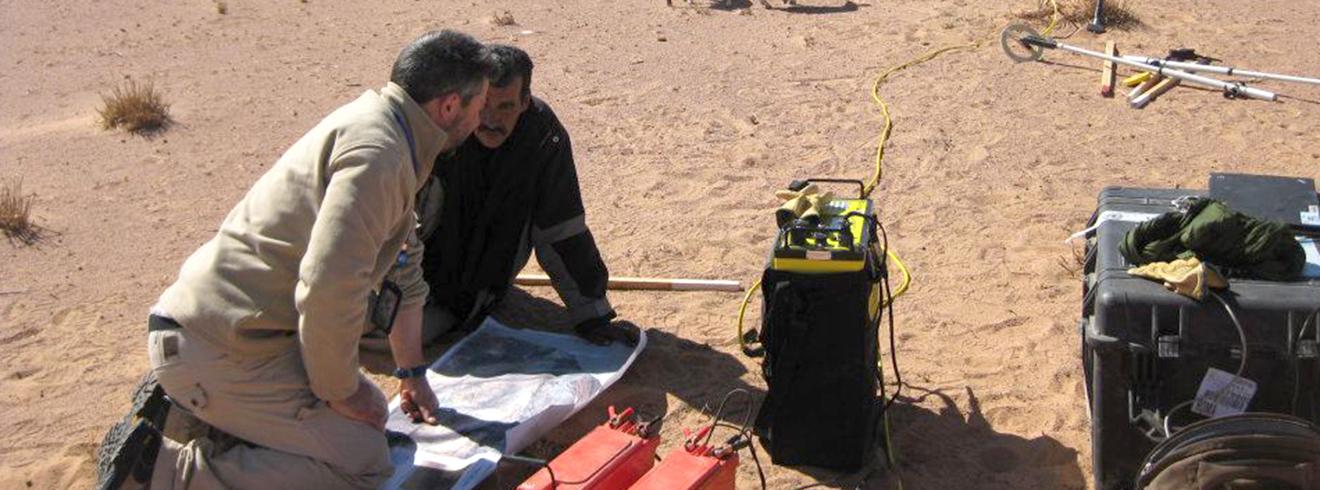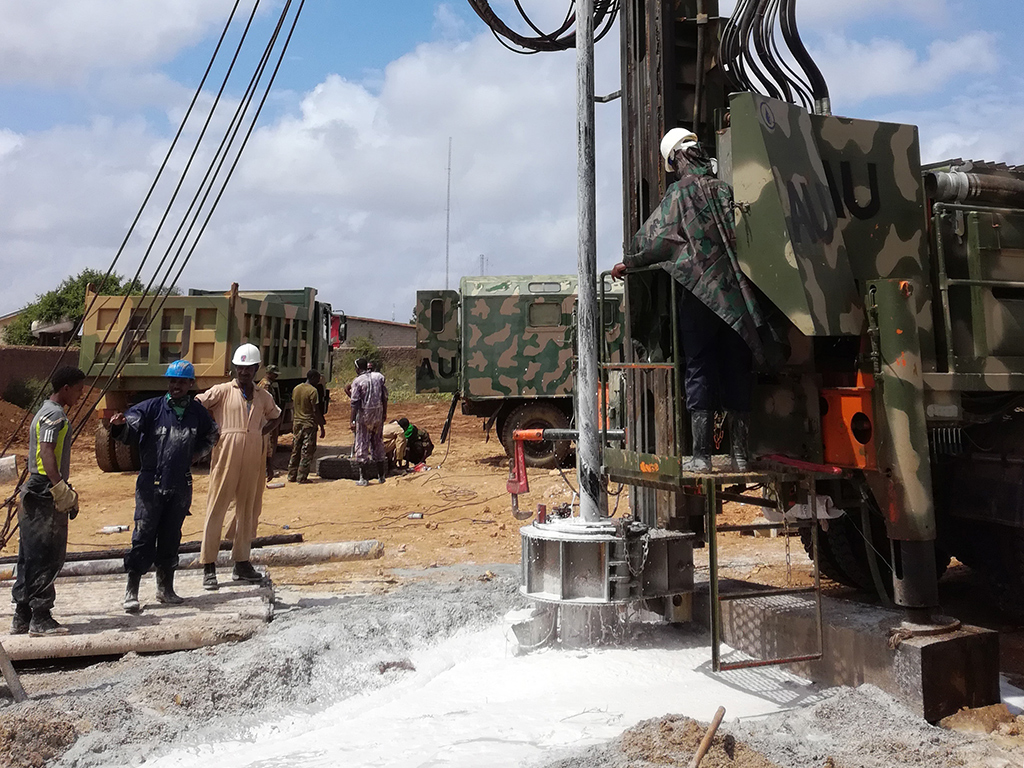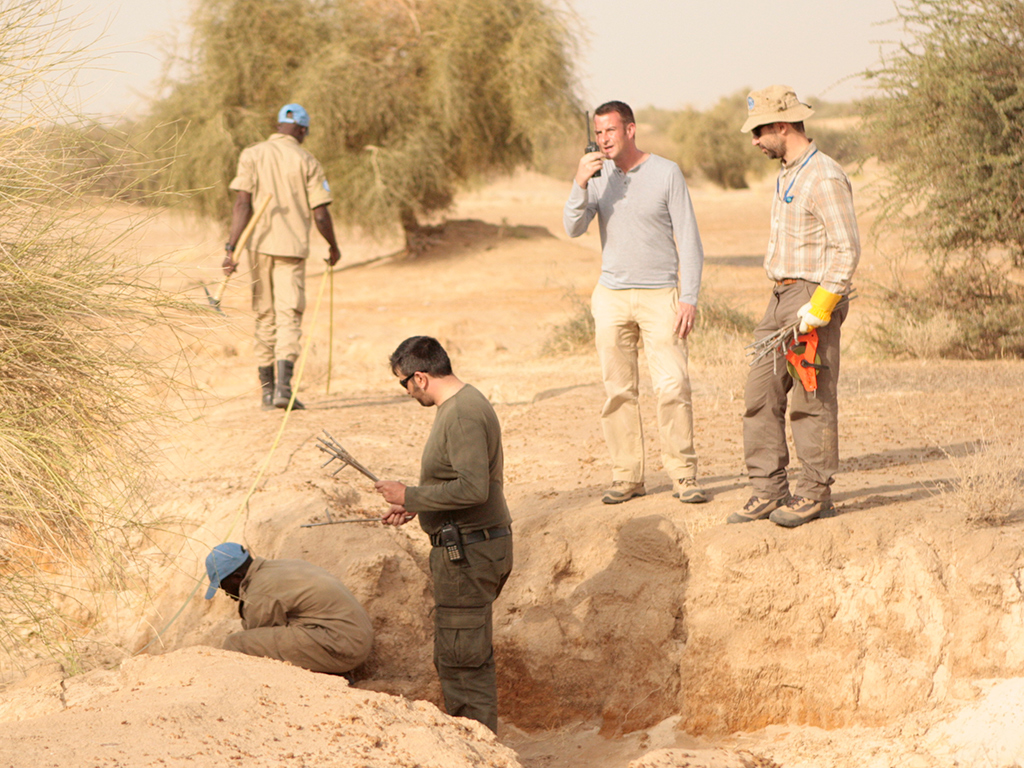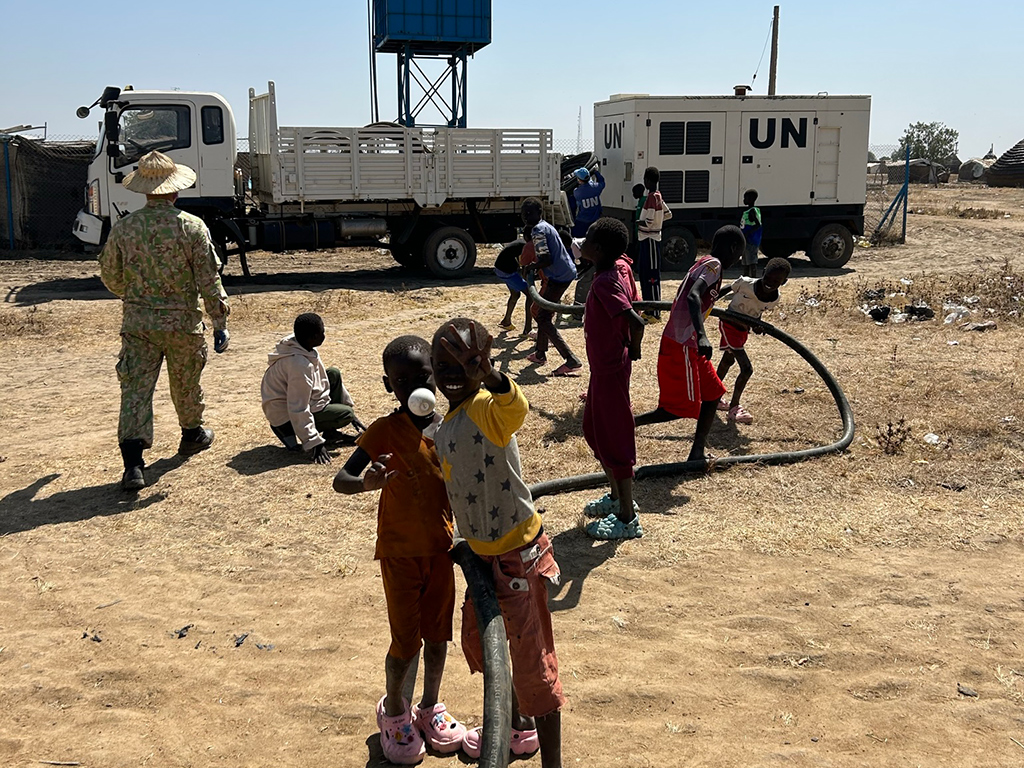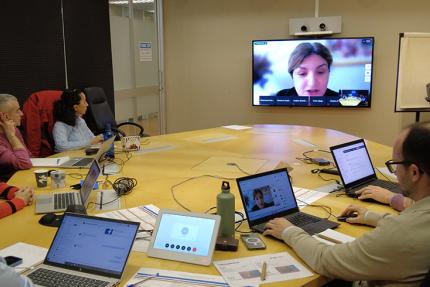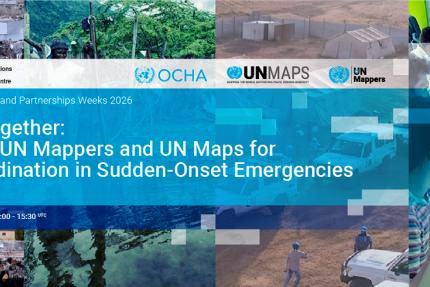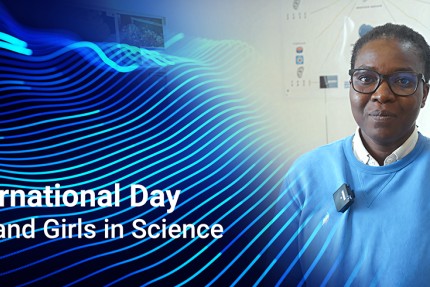From Crisis to Capacity
Seventeen mission-managed boreholes were rehabilitated, increasing water yields by up to 0.7 litres per second and significantly improving water quality. Two boreholes at UNISFA headquarters were equipped with Field Remote Infrastructure Monitoring (FRIM) sensors, enabling real-time tracking of water levels and safety indicators. These systems allow for early detection of contamination, proactive maintenance, and uninterrupted supply—ensuring that critical UN operations remain mission-ready.
Recognizing the needs beyond the mission perimeter, the project expanded to include nine community boreholes. These upgrades had an immediate impact, particularly for women and children who bear the burden of water collection. For Amaal, a mother of six, the change was life-altering:
“Before, my children fell ill from dirty, foul-smelling water. Now, clean water is minutes away.”
Local leaders played a central role in guiding the project, ensuring that interventions were aligned with community priorities and cultural context. This inclusive approach helped foster trust and cooperation—key ingredients for sustainable peace.
Technology as a Tool for Peace
Water scarcity in Abyei has long been a source of tension, particularly during the dry season when pastoralist communities migrate in search of water for livestock. These seasonal movements can lead to disputes over resources and, at times, violent clashes.
In response, a solar-powered borehole was upgraded near key grazing routes to meet the pressing needs of the dry season. The site was selected in consultation with local leaders from both farming and herding communities, with the aim of reducing pressure on shared resources and supporting peaceful coexistence.
UNGSC’s technical leadership was instrumental throughout the process—conducting hydrogeological surveys, identifying optimal drilling sites, designing solar-powered pumping systems, and training over 20 local technicians. These efforts are helping to transform water infrastructure into a platform for dialogue, cooperation, and stability.
Laying the Groundwork for Resilience
Eight months into the initiative, the results are tangible. Clean water is flowing again. Communities are healthier. And the mission is better equipped to operate in a complex and evolving environment.
More than 50 additional community boreholes have been identified for future rehabilitation. Replacing hand pumps with solar-powered systems will reduce maintenance burdens, improve reliability, and ensure continued access during dry seasons. Ongoing geophysical surveys are also deepening understanding of Abyei’s groundwater potential, guiding sustainable resource management.
“Water is vital for maintaining peace and cooperation between communities,” said Andrew Dembe, UNISFA’s Water and Sanitation Chief.
“When the wells are full, the hearts of people grow calm,” shared a local elder.
A Model for Mission-Critical Support
The work of UNGSC and UNISFA in Abyei demonstrates how mission-critical services—when grounded in local context and delivered with neutrality—can support both operational continuity and peacebuilding. By combining technology, capacity building, and community engagement, the initiative is not only addressing immediate needs but also laying the foundation for long-term resilience.
This is how we strengthen foundations for the future. From scarcity to stability.
Ensuring that even in the most fragile settings, the United Nations remains a trusted partner in delivering hope, dignity, and peace.
